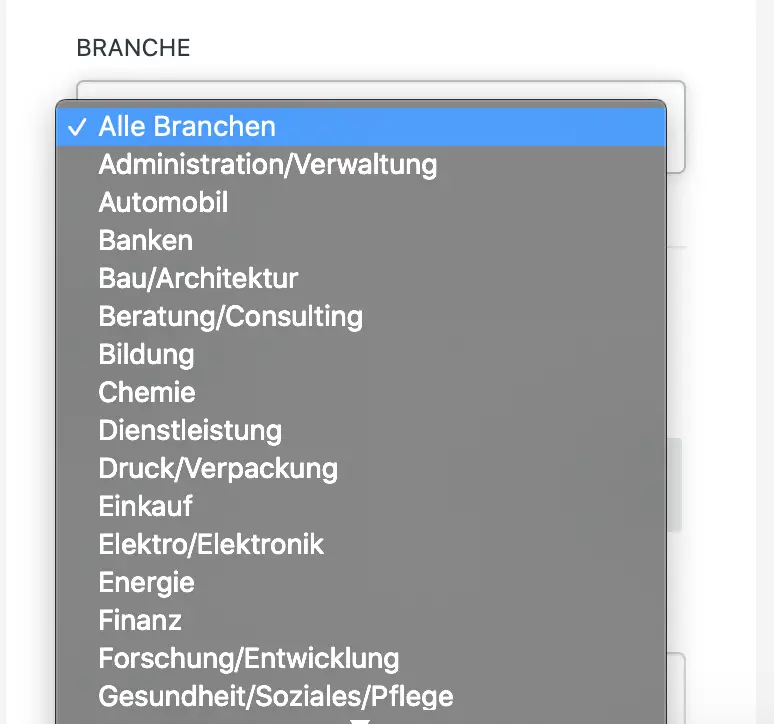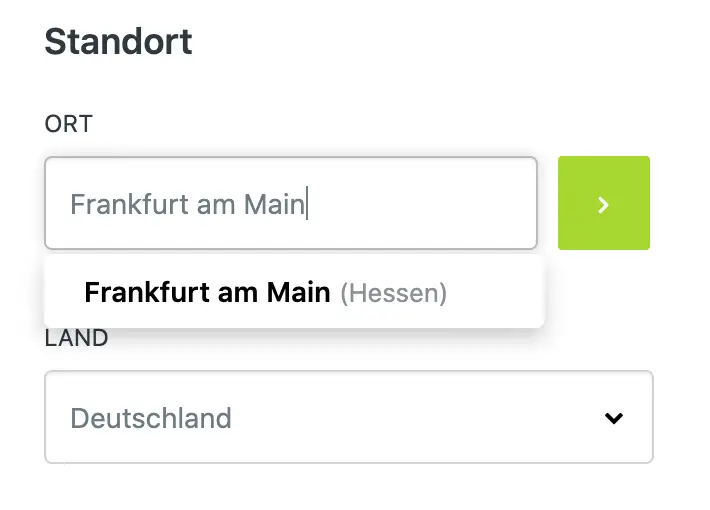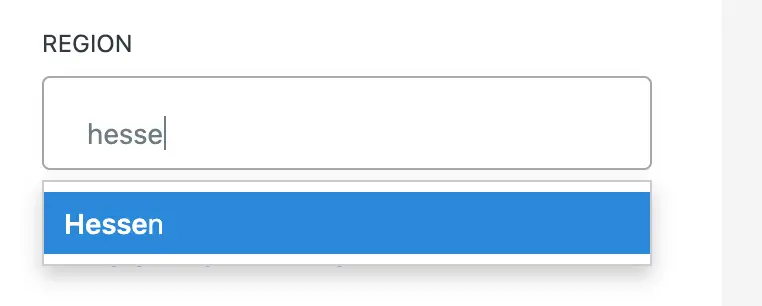
Are you ready to embark on a life-changing journey filled with boundless opportunities and cultural richness? Look no further than the coveted German Permanent Residence Permit! Imagine a world where you can truly call Germany your home, where you can flourish in a land known for its thriving economy, breathtaking landscapes, and vibrant communities. In this article, we delve into the transformative power of the German Permanent Residence Permit, a gateway to stability, security, and a future brimming with endless possibilities.
Discover how this sought-after permit opens doors to personal growth, professional success, and fulfilling life in one of Europe’s most vibrant nations. Buckle up and prepare to unravel the secrets of the German Permanent Residence Permit, as we embark on an exhilarating journey of positive transformation and unlimited potential.
Getting German PR: A Challenging yet Rewarding Journey to Embrace
Obtaining the German Permanent Residence Permit is a process that requires fulfilling certain criteria, but with careful preparation and adherence to the requirements, it is indeed achievable. Germany offers various pathways for individuals to secure their permanent residence, such as employment-based, family reunion, or through long-term residency. While the process may involve gathering the necessary documentation, demonstrating integration into German society, and fulfilling specific residency and language requirements, the German government provides clear guidelines and resources to assist applicants.
By navigating the well-defined pathways and showcasing a genuine commitment to the country, individuals can embark on their journey towards obtaining the highly valued Permanent Residence Permit in Germany, opening the door to long-term stability, professional growth, and a vibrant life in the heart of Europe.
Types of Permanent Residence Permits in Germany
In Germany, there are several types of permanent residence permits available to individuals seeking long-term residency in the country. These include:
- Niederlassungserlaubnis (Settlement Permit): This permit grants unlimited residence and work rights in Germany, allowing individuals to permanently settle in the country.
- Aufenthaltserlaubnis zur Niederlassungserlaubnis (Residence Permit for Permanent Settlement): This is a temporary residence permit that serves as a pathway to obtaining the Settlement Permit. It is typically granted to individuals who have fulfilled specific criteria, such as contributing to the German economy or meeting certain language requirements.
- Erlaubnis zum Daueraufenthalt-EG (Permanent Residence – EU): This permit is designed for individuals who are citizens of other EU member states or their family members. It provides them with the right to permanently reside and work in Germany.
- Blaue Karte EU (Blue Card EU): This permit is specifically intended for highly skilled professionals from non-EU countries. It allows them to live and work in Germany, with the possibility of transitioning to permanent residency after a certain period.
- Familiennachzug (Family Reunion): This type of permit is granted to family members of German citizens or individuals with permanent residence in Germany. It enables family reunification and provides the right to live and work in the country.
Requirements For The Permanent Residence Permit in Germany

To apply for German permanent residency, you will need to submit the following documents to the Ausländerbehörde (Foreigners’ Office):
1. Valid passport.
2. Completed Settlement Permit Application Form.
3. Recent biometric photograph that adheres to German visa picture guidelines.
4. Health insurance certificate: If you have statutory insurance, provide confirmation from your provider. If you have private health insurance, submit the insurance policy and proof of paid contributions.
5. Certificate of German language proficiency.
For employed individuals:
– Employment contract.
– Recent employer certificate (issued within the last 14 days).
– Salary statements from the past six months.
– Certificate from the pension insurance institution.
For self-employed individuals and freelancers:
– Completed audit report prepared by a tax consultant, auditor, or tax agent.
– Last tax assessment notice.
– Any additional requested documentation.
For pensioners:
– Notice of pension entitlement.
– Notice of pension information issued by the German Pension Fund.
– Proof of payment of social security contributions.
6. Document of home ownership or lease agreement to demonstrate adequate accommodation for yourself and any family members.
7. Proof of address registration, such as a Certificate of Registration, indicating Germany as your primary place of residence.
If you fall into any of the following groups, you qualify for an expedited route to obtaining permanent residency in Germany, bypassing the usual four-year waiting period:
- Graduates from a German university or vocational school.
- Individuals with exceptional qualifications and expertise.
- Holders of the EU Blue Card.
- Self-employed individuals.
- Family members of German citizens.
Holders of the EU Blue Card
For EU Blue Card holders, the path to a permanent residence permit in Germany is shortened to just 33 months. As long as you have been employed in a position that aligns with your qualifications and has consistently made monthly contributions to the statutory pension insurance fund, you can qualify. It is also necessary to demonstrate a minimum proficiency in the German language (A1 level), an understanding of German life, and adequate living arrangements.
read more about the EU-Blue card here.
Self-employed Individuals
Self-employed individuals who have been actively working for three years and possess a valid residence permit for self-employment are eligible to apply for permanent residency in Germany. Demonstrating successful self-employment at the time of application is crucial. Additionally, providing proof of sufficient funds to cover your own and your family’s living expenses is necessary.
Family Members of German Citizens
Immediate family members of German citizens who are employed in Germany can pursue permanent residency after three years. Requirements include achieving at least a B1 level of German language proficiency, confirming the intention to continue residing with the German citizen relative, having a personal income without reliance on social security assistance, possessing a valid work permit, and contributing to pension insurance.
Graduates From a German University or Vocational School
For graduates from German universities or vocational schools who have completed at least two years of work in Germany, a pathway to permanent residence is available under certain conditions:
Your employment must be directly related to the degree or vocational training you received in Germany.
You should have made contributions to the pension insurance for a minimum of 24 months.
Permanent Residency in Germany: How Much Does it Costs
As per the official website of the German Federal Government, the fees associated with obtaining permanent residence in Germany are as follows:
- Standard cost: €113
- Fast-track through self-employment: €124
- Fast-track as a highly qualified professional: €147
These fees are subject to change, so it’s advisable to consult the official government sources or the relevant authorities for the most up-to-date information regarding permanent residence costs in Germany. For detailed information, you can visit the official German Federal Government website at German Federal Government website.
Potential Consequences of Losing Permanent Residency in Germany
Your permanent residence rights in Germany can be jeopardized under the following circumstances:
1. Prolonged Absence: If you leave Germany and remain outside the country continuously for more than six months, your permanent residence could be at risk.
2. Providing False Information: If you are found guilty of providing false or misleading information to the immigration authorities during the application process, it may result in the loss of your permanent residence rights.
3. Serious Criminal Offenses: Engaging in a serious crime that poses a threat to public order or safety can lead to the revocation of your permanent residence in Germany.
Furthermore, for specific types of serious offenses, the German authorities have the authority to impose a ban on your future settlement applications. However, in cases where a ban is not imposed, you can reapply once you meet the eligibility requirements again for German permanent residence.
It is crucial to be aware of and comply with the legal obligations and responsibilities associated with maintaining a permanent residence in Germany to ensure the longevity and security of your status.
The Privileges and Entitlements of Being a Permanent Resident in Germany
As a permanent resident of Germany, you enjoy various rights and benefits, including:
1. Indefinite Residency: You can reside in Germany without the need to renew your residence permit.
2. Job Flexibility: You have the freedom to change your employment, regardless of whether it aligns with your academic qualifications or training.
3. Entrepreneurial Opportunities: You can establish and operate your own business, irrespective of its connection to your educational background.
4. Social Security Assistance: If necessary, you are eligible to receive social security benefits, such as unemployment benefits, to support your financial well-being.
5. Financial Accessibility: You have the option to apply for bank loans, providing greater financial opportunities.
6. Educational Advancement: You can enroll in German universities and even seek financial assistance during your studies.
7. Path to Citizenship: After continuously living in Germany for eight years, you can apply for naturalization as a German citizen.
Travel Benefits as a German Permanent Resident
As a permanent resident of Germany, you possess travel privileges within the Schengen Zone, allowing visa-free travel for up to 90 days. Additionally, you can visit several other European countries, including Albania, Bosnia and Herzegovina, Bulgaria, Croatia, Cyprus, Georgia, Kosovo, Mexico, Montenegro, North Macedonia, Romania, and Turkey, granting you further exploration opportunities.
These rights and travel benefits enhance your overall experience and integration as a permanent resident in Germany, providing opportunities for personal growth, professional advancement, and seamless travel across borders.
Steps to Take if Your Application for Permanent Residency in Germany is Declined
In the event that your application for permanent residence in Germany is turned down, the immigration authorities are required to provide a comprehensive explanation outlining the grounds for their decision. If you believe that you have been treated unfairly or essential information pertaining to your application has been overlooked, you have the option to request a reconsideration of the decision.
If the reconsideration process does not yield a satisfactory outcome, you can proceed to present your case before the German administrative courts. The German judicial system encompasses multiple levels, including regional courts, higher regional courts, and the Federal Court of Justice. In exceptional circumstances, if necessary, you can escalate your case to the European courts as a final recourse.
German Citizenship vs. Permanent Residence
While holding a permanent residence permit in Germany offers numerous benefits, it does not grant certain privileges available to German citizens. Permanent residency does not provide the right to vote in elections or obtain a German passport. However, if you have resided in Germany for over eight years, you have the option to pursue German citizenship, which grants additional rights and responsibilities, including the ability to participate in the democratic process through voting and enjoy the full privileges and protections afforded to German citizens.
we hope this article has provided valuable insights into the distinctions between German citizenship and permanent residence. While permanent residency offers stability and various benefits, obtaining German citizenship unlocks additional rights and opportunities. We encourage you to explore more of our articles to deepen your understanding of the topic.
We value your feedback, so please feel free to leave comments and share your thoughts. Thank you for reading, and we look forward to continuing to provide you with informative content in the future.

































